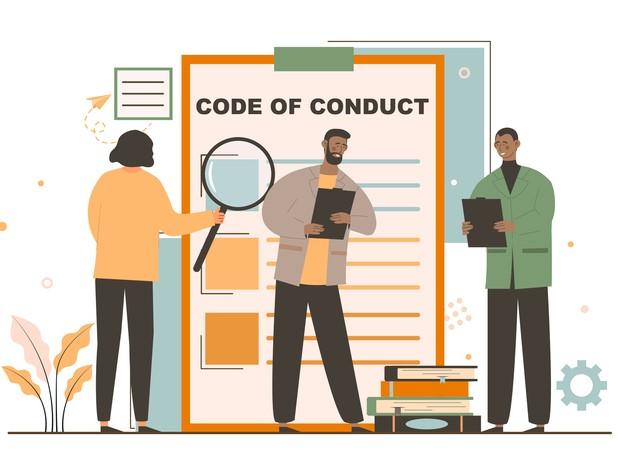
So you want to host an international online conference?

You may also like
In essence, online and face-to-face conferences are the same: both need speakers and attendees, engaging content and a space to stage the event. Both need to be promoted and presented professionally and delivered on time. And both need to provide value for money. The only real difference is that online conferences are easier to run because all this happens in cyber space.
Yeah, right.
As much as we might want to believe that conferences are all about professional development, that in-person events usually involve travel and the prospect of a few days’ vacation tacked on is a major attraction, online the only travel you get is to the kitchen for a cuppa between sessions.
- Seven tips on finding and establishing international partnerships
- Virtual mobility: a first step to creating global graduates
- Sea of sameness: why universities have trouble with branding
So how do you get people to pay to attend your conference from their home or office? How do you ensure people know about it? And how will you make sure the event runs smoothly? Here are key considerations when organising an online academic conference.
Where’s the value in online events?
Your conference has to be unique. It might not be a place geographically, but it must be a destination in terms of content. What’s your point of difference? Is anyone else offering the same? Are they doing it better? Are they doing it first? In our case, the International Block and Intensive Learning and Teaching Association (IBILTA) conference was the only international block teaching conference in the world, so we knew we had that space to ourselves.
Your conference has to be unique in terms of content and speakers, too. Who do your audience want to hear from and on what topics? Be clear about the value you are offering and to whom.
OK, so you’re showcasing great content and good speakers; you’ve piqued my interest. Where’s my souvenir bookmark, my show bag? Where’s my morning tea and muffin? My conference dinner? And, again, why should I be paying to join a bunch of Zooms from my lounge?
Good questions all. No, you can’t offer much in terms of concrete add-ons, but think about other perks. Could conference registration include membership of your association and whatever benefits that confers? Your overheads should be low, so why not pass on the savings?
Call in the professionals
Speaking of overheads, having event-management expertise on board is crucial. We didn’t know what we didn’t know, so we wasted time, money and effort going round and round in unproductive circles until we called in the professionals. Employing a media professional to set up our conference registration sites and our landing and programme pages was similarly – and extraordinarily – beneficial. Make use of institutional expertise (we reached out to colleagues at Victoria University in these fields) to minimise costs.
If you don’t have that expertise in house, consider buying it in via sponsorship or in-kind trades. We ended up with a conference that looked great and ran without a hitch – I shudder to think what would have happened had we decided to do it all ourselves.
Promote your event widely and clearly
As with all conferences, spreading the word is vital. Use all the usual communication channels: professional and private networks, social media, mainstream media placement, conference listing sites and institutional communications. Clarity of message, especially in terms of value and uniqueness, is crucial. Simple, consistent imagery that is easily shared on social media helps create a brand image and reduces the need for exposition. The text that goes with this image should stress the benefits of registration, in both fiscal and academic terms.
Start planning yesterday
Time: there is never enough. Start your planning as early as possible. A year ahead is good. We had eight months – we’re giving ourselves 14 months of lead time to our next conference, which will be face to face. Set the date and work backwards in terms of planning.
An international conference will run across time-zone issues. The more continents are involved, the more complicated it is. We had presenters and attendees from Australia, Europe, North America and Asia, so we ran our conference in two four-hour sessions with a three-hour break between, which allowed us to schedule sessions at reasonable times for (almost) all attendees and presenters. Despite this, we had one person presenting at 2am her time. We’re still apologising for that.
Recording all presentations and hosting these on a dedicated YouTube channel (another chance for your media guru to help you shine) is one way to ensure everyone has access to all sessions.
When things go wrong
Internet connections can go down. PowerPoint presentations can freeze. People will get sick. Plan for this and set up contingencies as necessary. Perhaps you, as the conference committee, have stand-by presentations you can drop into the schedule and deliver yourselves to fill any holes. Think about asking presenters to send you their slides ahead of time or save them as both PowerPoint presentations and PDFs in case one format fails.
Select your conference committee with care
Choose your committee members wisely – you will spend a lot of time with them. Look for colleagues with a diverse skill set, the ability to think around corners and, perhaps most importantly, those who are reliable and consistent.
Be prepared to work long hours, repeatedly ensuring everyone has the right link, to the right session, at the right time-zone time. You need to stay in closer contact with your attendees and presenters than you would for a face-to-face conference, too, to maintain their commitment. It’s much easier to pull out of an online conference than one you’ve committed big travel dollars to. It’s your job as a committee to ensure that doesn’t happen.
This is far from being an exhaustive list, but it does give you some idea of the key boxes you’ll need to tick when organising your first online conference.
John Weldon is associate professor and head of curriculum, Loretta Konjarski is associate dean of learning and teaching, and Bert Oraison is a senior lecturer and deputy associate dean, all of First Year College at Victoria University, Australia.
If you found this interesting and want advice and insight from academics and university staff delivered direct to your inbox each week, sign up for the Campus newsletter.


